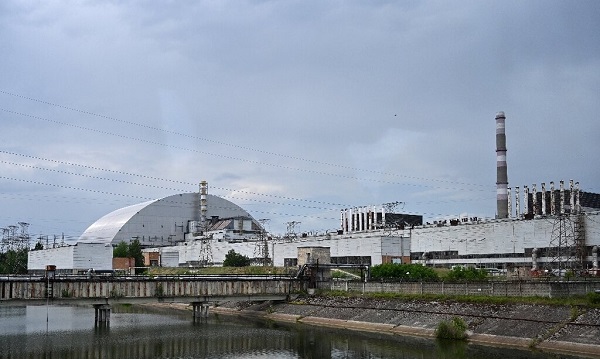Vienna, (Samajweekly) Ukraine has told the International Atomic Energy Agency (IAEA) that technicians have started repairing damaged power lines in an attempt to restore external electricity supplies to the Russian-controlled Chernobyl Nuclear Power Plant (NPP) that were entirely cut off earlier this week, Rafael Mariano Grossi, head of the Vienna-based UN agency, said.
“Ukraine’s regulatory authority said work that began on the evening of March 10 had succeeded in repairing one section, but off-site electrical power was still down, indicating there was still damage in other places” a statement posted on the IAEA’s website on Friday quoted the Director General as saying.
The statement added that repair efforts would continue despite the difficult situation outside the plant.
According to the UN’s nuclear energy watchdog, emergency diesel generators have been providing back-up power to the site since Wednesday, when the outage was reported.
“Additional fuel had been delivered to the facility. However, it remains important to fix the power lines as soon as possible”, it said.
Since the regulator lost all communications with the plat on Thursday, it has been unable to provide information to the IAEA about the radiological monitoring at the facility, the site of the world’s largest nuclear disaster, the watchdog said.
The IAEA added that Chernobyl’s stranded staff — 211 technical personnel and guards– are facing increasingly difficult conditions and were also running out of food supplies.
Although operations stopped at the plant after the catastrophic nuclear disaster in 1986, Chernobyl was never fully abandoned and still requires constant management. Spent nuclear fuel is cooled at the site.
Meanwhile, power supply situation situation at the Zaporizhzhya NPP, which was also captured by Russian forces on March 4, has remain unchanged, the IAEA said
In the city of Kharkiv, a new nuclear research facility that was also previously hit has suffered additional damage, it noted.
“The facility is used for research and development and radioisotope production for medical and industrial applications. Because its nuclear material is subcritical and the inventory of radioactive material is very low, the IAEA has assessed that the damage would not have had any radiological consequence.”
According to the IAEA, eight of the country’s 15 reactors are currently operating — two at the Zaporizhzhya NPP, three at Rivne, one at Khmelnytskyy, and two at South Ukraine.









